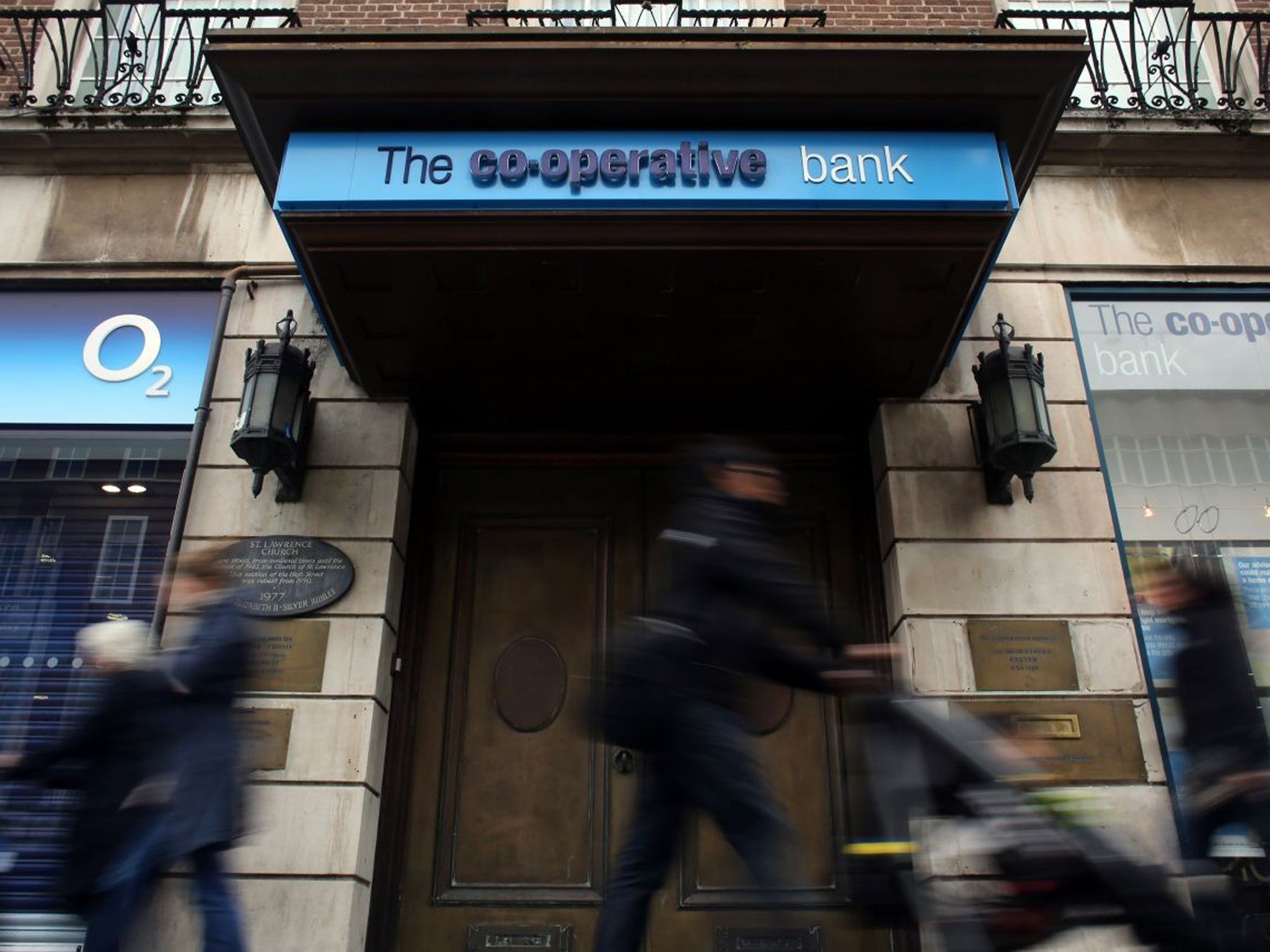James Moore: A veil fell from the Co-op's face and customers may not like what they see

Your support helps us to tell the story
From reproductive rights to climate change to Big Tech, The Independent is on the ground when the story is developing. Whether it's investigating the financials of Elon Musk's pro-Trump PAC or producing our latest documentary, 'The A Word', which shines a light on the American women fighting for reproductive rights, we know how important it is to parse out the facts from the messaging.
At such a critical moment in US history, we need reporters on the ground. Your donation allows us to keep sending journalists to speak to both sides of the story.
The Independent is trusted by Americans across the entire political spectrum. And unlike many other quality news outlets, we choose not to lock Americans out of our reporting and analysis with paywalls. We believe quality journalism should be available to everyone, paid for by those who can afford it.
Your support makes all the difference.Outlook For a long time people accepted that Co-op hadn't always been the most dynamic of institutions, on account of its much-vaunted ethics. Its management may not have been out of the top drawer, but at least their hearts were in the right place. Now that is being exposed as a sham.
It appears that a cesspool of low politics allowed Paul Flowers, a man who was hopelessly unsuitable, to rise to become chairman of a significant deposit-taking institution – with the acquiescence of the bank's somnolent regulators. The consequence? Questions were not raised when that bank embarked on a crazy series of strategic moves that its management were clearly incapable of executing.
The former chief executive of Co-operative Financial Services, David Anderson, tried to defend one of those moves, telling MPs that the merger of the Co-operative Bank with Britannia Building Society was "the right decision at the time". He painted a picture of a Britannia that appeared to have few genuine red flags against it after advisers had completed their due diligence work and banked their large cheques, even though there were some loans that he admitted the Co-op would have "treated differently".
With the Co-op facing the problems of a high cost base and limited distribution for its product, Mr Anderson appears to have seen the deal as a quick fix and ploughed ahead in 2008 and 2009 despite the financial world being in the midst of a horrible crisis. Andrea Leadsom, MP, described that decision as bizarre, and she's right. Mr Anderson, who left after the deal completed, seems to have forgotten a core lesson of banking: it often takes time for the effect of an event such as the crisis to be made manifest on loans.
As he was testifying, the veil from the Co-op's hidden face continued to fall. And it is this, rather than the bank's problems with its icky Britannia loans, that represents a real threat to its future.
Customers go to the Co-op because they like what it represents. They think of it as a community-based organisation that puts their interests first rather than serving the wolves from the City. That applies not just to its "we don't invest in nasty regimes" bank but also to its retail operation and to other parts of the business. Now that its very ethos is being called into question, those customers may think twice.
The Co-op has moved to address the issue. Its chairman, Len Wardle, brought forward his departure yesterday. An inquiry is under way into structure and ethics. However, this may prove too little, too late.
Join our commenting forum
Join thought-provoking conversations, follow other Independent readers and see their replies
Comments